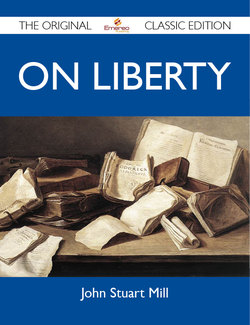Описание книги
John Stuart Mill (1806-1873) was interested in the nature of Civil Liberty, and the limits to the power that a Government can legitimately exercise upon its citizens. He believed that some worrying tendencies could be observed in the England society of his time, and tried to warn others about them. <p> The author basically explains his ideas regarding the preservation of individual liberties, not only due to the fact that they are rights owed to everyone, but also because they benefit society as a whole. <p> For example, when he says that liberty of thought and of discussion must be preserved, he tells us that Wrong opinions and practices gradually yield to fact and argument: but fact and arguments, to produce any effect on the mind, must be brought before it. How can mistaken beliefs or actions be proven wrong, if dissent is forbidden?. The loss for society is clear: If the opinion is right, they are deprived of the opportunity of exchanging error for truth; if wrong, they lose, what is almost as great a benefit, the clearer perception and livelier impression of truth, produced by its collision with error. <p> In order to preserve the liberties included in the concept of Civil Liberty, the author points out that there must be limits to the action of the Government. He says that The only purpose for which power can be rightfully exercised over any member of a civilized community, against his will, is to prevent harm to others. Any other reason is simply not good enough. Thus, Stuart Mill highlights the rights of the individual, but also the limit to those rights: the well-being of others. <p> On Liberty is not too long, and I think you are highly likely to enjoy it, if you can get past the first few pages. The problem is that even though the ideas in this book are quite modern, the language is somehow dated. But then, we must remember that On Liberty was written a long time ago… <p> Notwithstanding that, do your best to read the first pages, and you will realize that after a while it will be much easier. This book is well-worth the effort you need to make at the beginning, because it is even more relevant today than when it was first published, in 1859. <p> Are individual rights important?. Why?. Do they have a limit?. You will found the answer for these questions, and much more, in On Liberty. What else can I say?. I believe this is a book that will help you to reflect on many important issues… I certainly cant think of a better reason to read it. All in all, recommended :)
